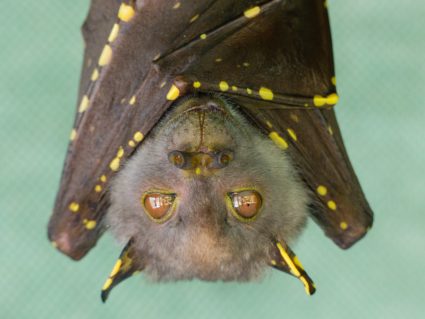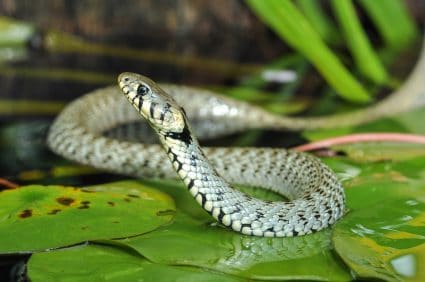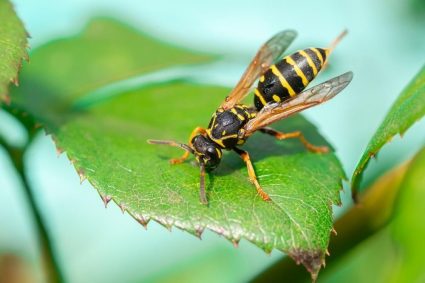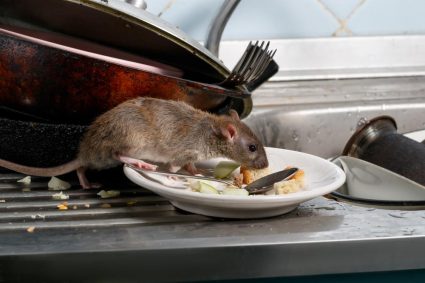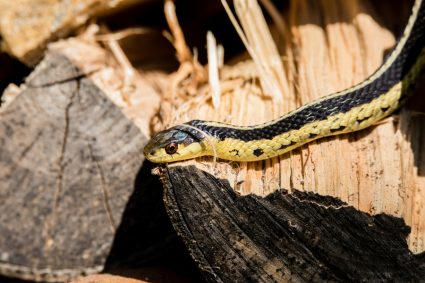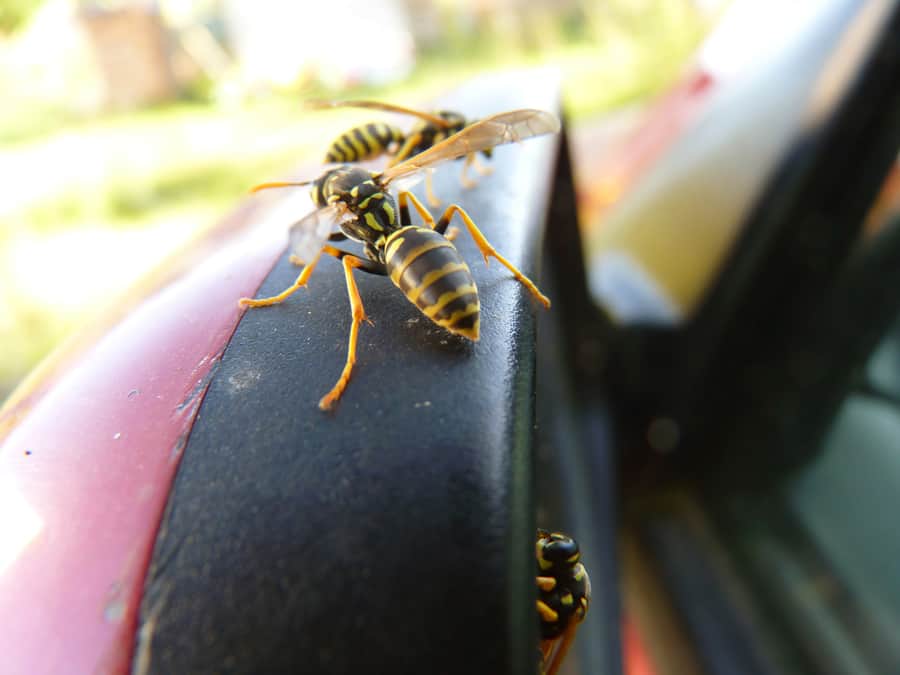
Summertime means road trips, picnics, and outdoor adventures, but it also means encountering those pesky wasps.
Nothing can ruin a beautiful day like a wasp flying into your car while you’re driving, and the thought of getting stung can be enough to make anyone nervous.
But fear not! There are simple and effective ways to keep wasps away from your vehicle so that you can enjoy your time on the road without any unwanted interruptions.
Read on to explore the best methods for deterring wasps and protecting your car from their unwanted presence.
The hum of a wasp’s wing can bring a sudden jolt of panic, especially when you’re behind the wheel of your beloved car. This can pose a nuisance and a serious threat to your safety.
Wasps can be a real pain, especially when they make their nests near the areas where we spend a lot of time.
In this article, we discuss the following aspects in detail:
- Wasps are complex insects with a sharp sense of sight and organized communication within colonies. Understanding their behavior lends us better insight to ensure they keep their distance from our car.
- You can use several effective methods to keep wasps away from your car, using deterrents that repel them visually or through odor.
- If you are stung by a wasp, you must carefully follow the first aid steps by removing the stinger, cleaning the area, and taking pain-relief medication. It is recommended to keep an eye on signs of an allergic reaction.
If you want to learn how to keep wasps away, read this article further.
You’re not alone if you’re tired of dealing with wasps and their nests near your car.
This article will teach several effective ways to keep wasps away from your car to enjoy a worry-free and safe experience.
Whether driving to work, running errands, or just parked at home, these tips will help you say goodbye to wasps issues.
Understanding Wasps’ Behavior
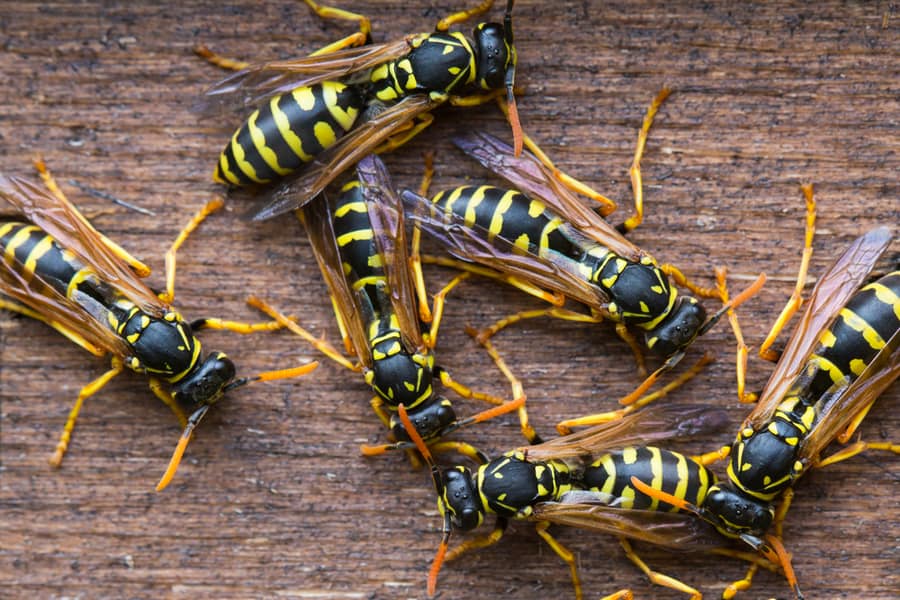
Wasps are fascinating insects known for their aggressive behavior and sharp senses. They are often seen as pests due to their tendency to build nests near homes and, let’s not forget, their painful sting.
However, understanding their basic behavior and senses can help us harmonize with these insects.
One of the most sharpened senses in wasps is their vision. Wasps have excellent eyesight, which they use to locate food and identify potential threats.
They are quite sensitive to movement, making it easier for them to detect prey or predators. This ability to detect movement also helps wasps to navigate their environment, as they can use visual cues to find their way back to their nest.
Another sharp sense in wasps is their sense of smell. Wasps have highly sensitive antennae to detect odors, including those from food and potential mates.
This sense of smell also plays a crucial role in communication within the colony, as wasps use pheromones to signal danger, attract mates and trace food sources.
Wasps are known for their highly organized social structure and cooperative behavior. They live in highly structured colonies with a clear division of labor, allowing them to work together effectively to ensure the colony’s survival.
7 Ways To Keep Wasps Away From Your Car
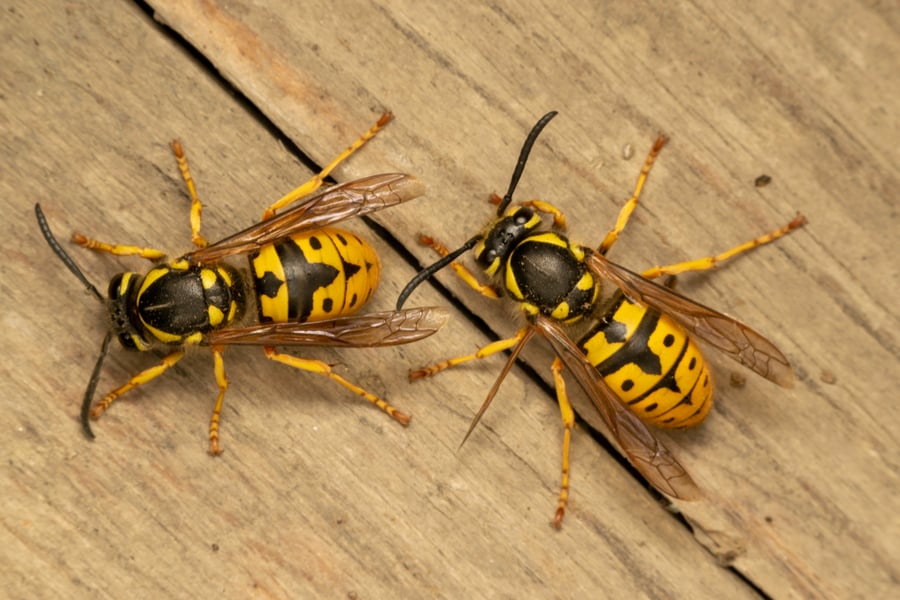
Wasps are a common sight during the warm months and can be quite a nuisance, especially when they make their nests near your car.
Not only can they threaten you and your passengers, but they can also cause damage to your car’s paint and other parts.
Don’t despair; there are quite a few effective techniques you can use to keep wasps away from your car.
1. Use Wasp Repellent Sprays
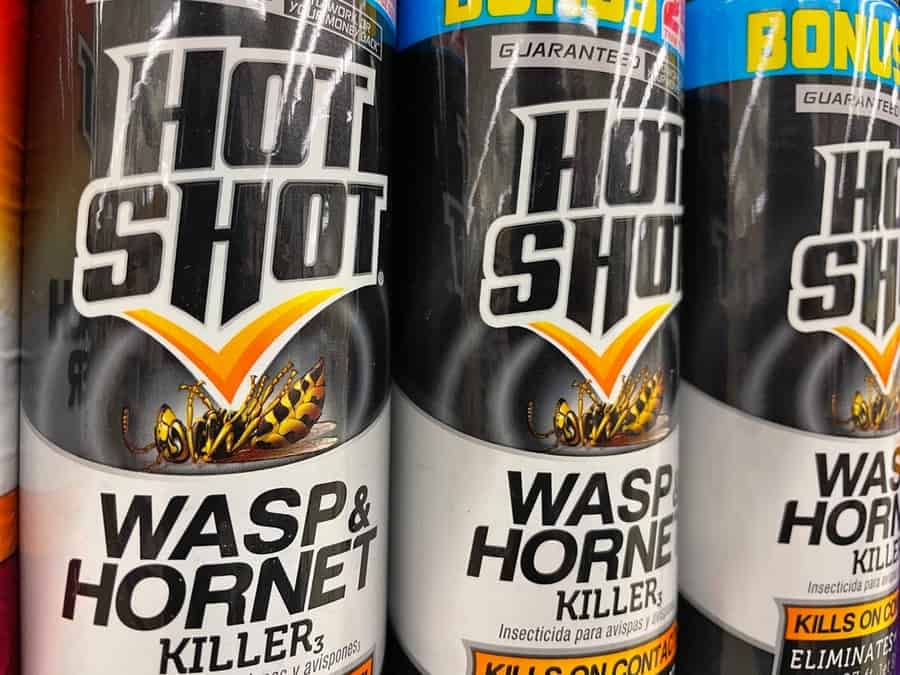
Wasp-repellent sprays are readily available in most stores and are an easy way to keep wasps away from your car. If you are skeptical about the contents of the spray, then you can easily prepare a DIY one at home using essential oils.
Essential oils such as lemongrass, lavender, eucalyptus, citronella, and peppermint are natural wasp repellents.
In a study published in the Journal of Agricultural and Food Chemistry, researchers tested the efficacy of various essential oils in repelling wasps. They found that citronella, lemongrass, and eucalyptus essential oils most effectively deterred wasps.
Mix a few drops of the essential oil with water and spray it around your car, including the windows and doors, to avoid wasps. While we may find these scents appealing, the wasps might not agree as they find the odor highly unpleasant and can’t resist but stay away.
It is important to point out that wasps are attracted to flowers, particularly those that produce nectar, as they provide a food source. Similarly, some fragrances, such as perfumes and scented lotions, can attract wasps.
If you are in an area that is prone to wasps, it is best to avoid fragrances or keep items in the open that stands to attract wasp towards it.
2. Place Fake Nests Near the Car
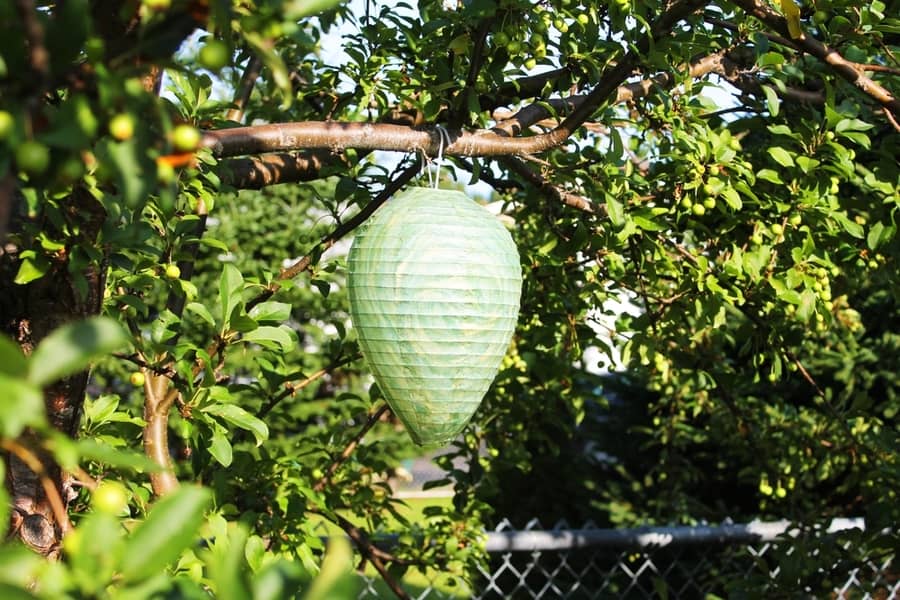
Wasps are territorial creatures who avoid setting up their nests near other wasp nests.
Place a fake wasp nest near your usual parking spot if you have a regular parking space. It will deter them from building a real one.
These fake nests are made of foam or paper and can be purchased at most garden centers.
3. Use Wasp Traps
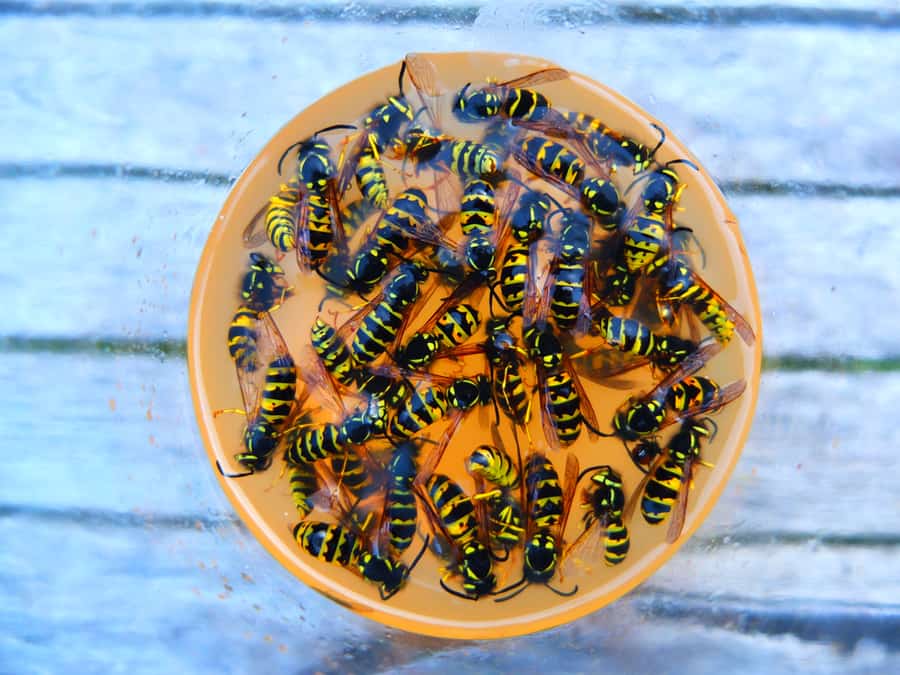
Wasp traps are another effective way to keep wasps away from your car. These traps contain a sweet bait that attracts wasps, and once they enter, they cannot escape.
Wasp baits can be purchased at any hardware store or can be ordered online as well. If you are concerned about using chemical attractants in the premade wasp baits from the store, you can easily make one at home using basic ingredients in a few simple steps:
- Bring a cup of water to a boil in a saucepan, and mix 2 cups sugar and 1 tablespoon vinegar.
- Keep stirring till the sugar does not dissolve completely.
- Take it off the heat and set it aside to come to room temperature.
- Punch holes into the lid of the jar.
- Pour the mixture into a jar and place a small piece of fruit before securing the lid with punched holes.
When placing the bait, it is important to ensure it is in an area away from your food and drinks.
Avoid placing the bait near areas where people may be around as it exposes them to a risk of a wasp sting.
4. Keep Food and Drinks Covered
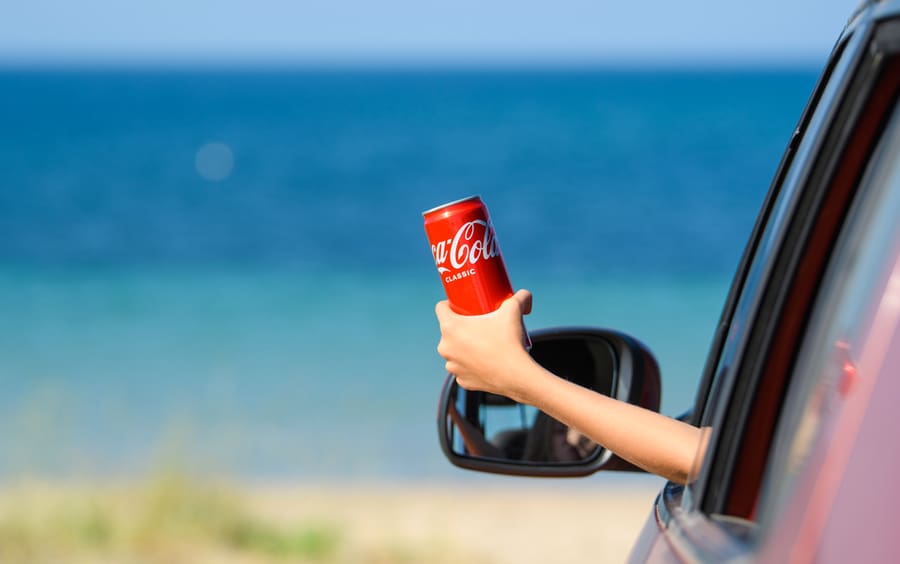
Wasps are attracted to anything and everything sweet and sugary, so keeping food and drinks covered near your car is important.
Or, if you’re in the habit of keeping eatables in your car, ensure it’s properly sealed off when not consumed.
5. Avoid Parking Next to Trash
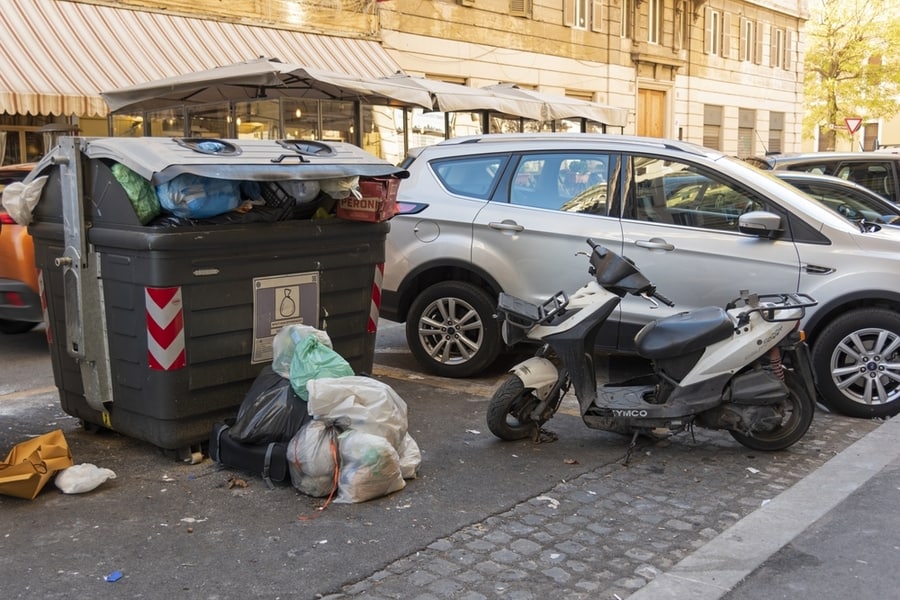
Open trash cans are a major attraction for wasps. It is important to ensure the garbage is properly disposed of and, better yet, avoid parking close to a trash can.
It is a common spot of attraction due to the systematic collection of appealing food for wasps and other pests.
6. Hanging Shiny Objects
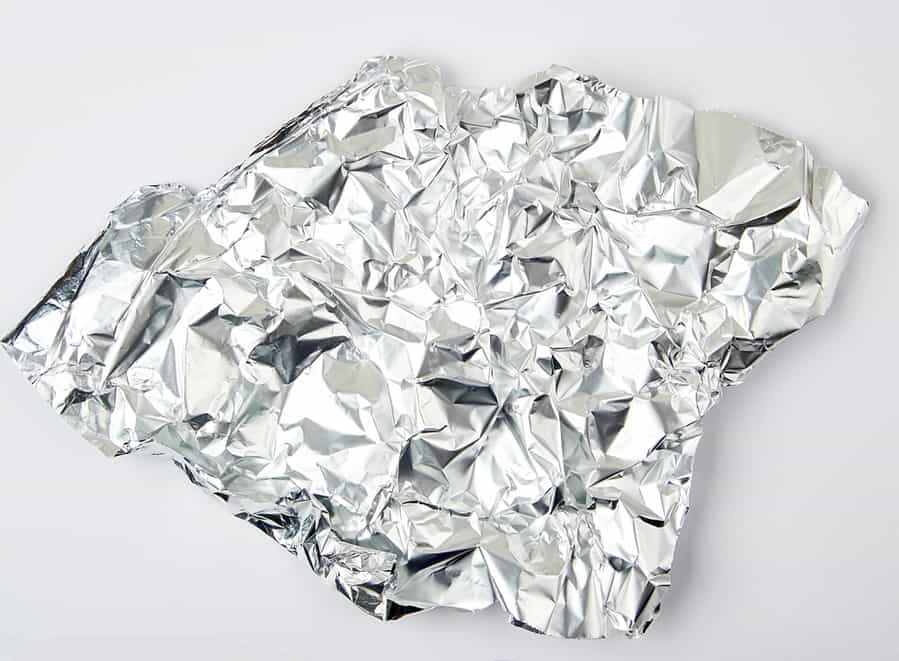
Wasps have a sharp sense of sight; hence we can use the knowledge to our advantage and make them feel repelled by using items that they find visually offensive.
One such thing is hanging shiny or reflective surface objects like aluminum foil or metallic ribbons.
Another proven trick is hanging a plastic container filled with water and coins near the car to keep wasps away.
It is still not scientifically proven why or how it works, but it is related to the compound vision that confuses them into interpreting it as dangerous.
7. Using Sound Deterrents
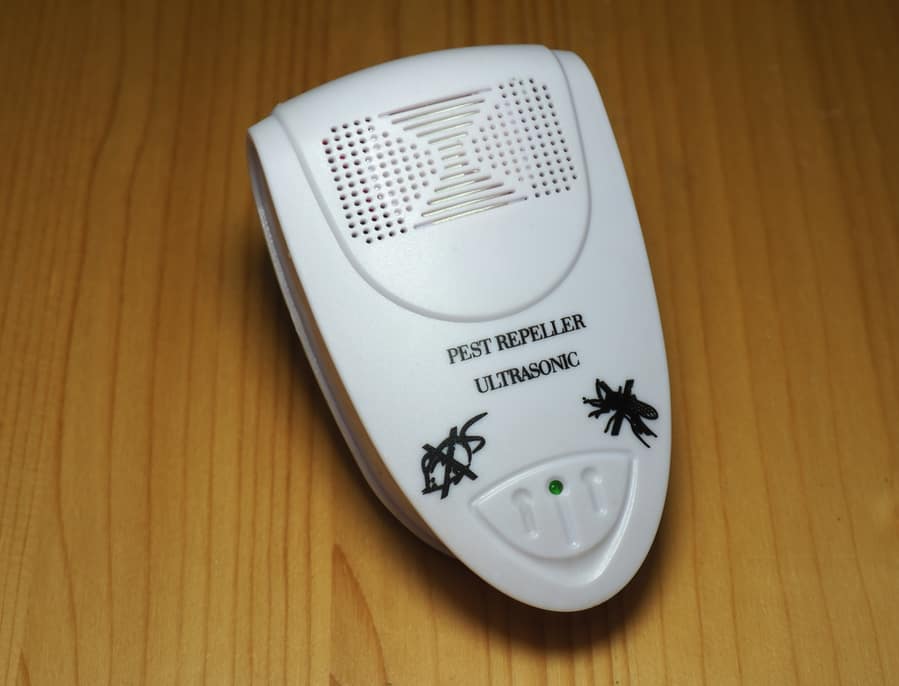
In a study published in the Journal of Pest Management Science, researchers tested the efficacy of various sounds in deterring wasps, including music, white noise, and high-pitched ultrasonic sounds.
They found that ultrasonic sounds were the most effective in reducing the number of wasp visits to sugary baits, while other sounds had no significant effect.
Treating a Wasp Sting
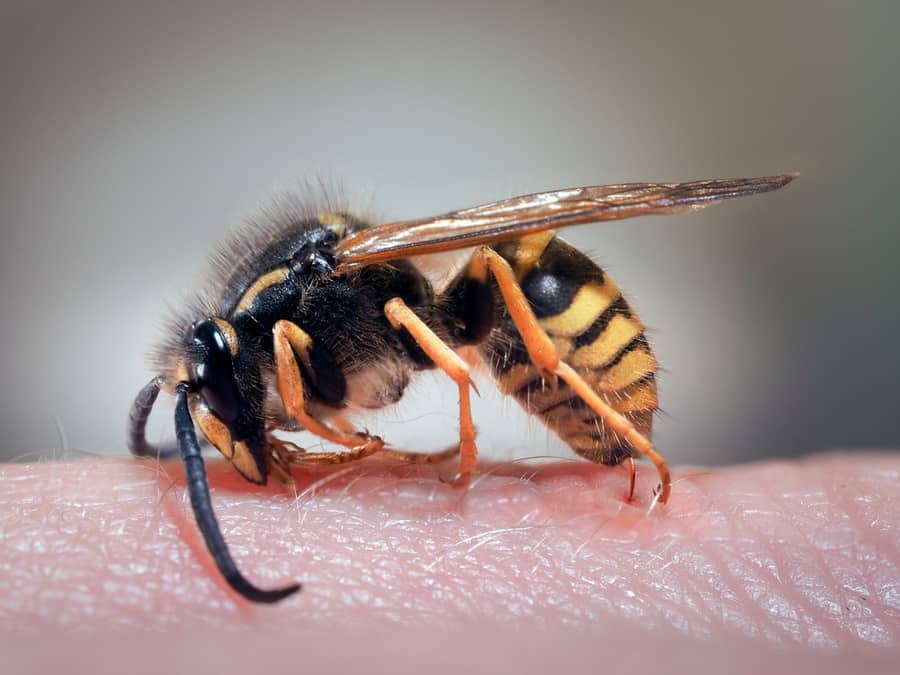
If you are stung by a wasp, here are some steps you can follow to treat the sting:
Remove the Stinger
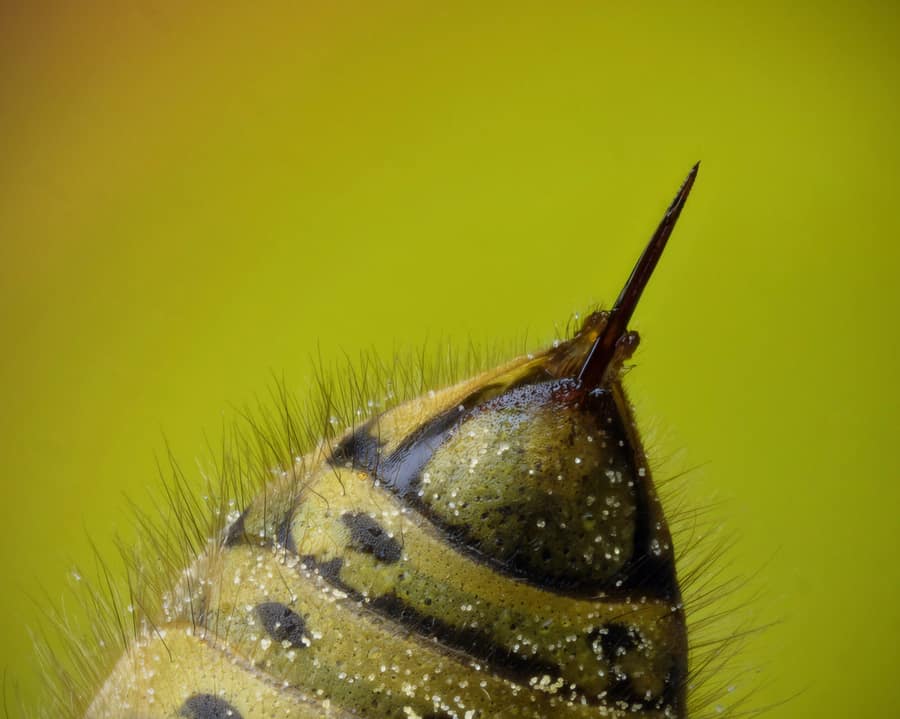
If the stinger is still in your skin, remove it using a pair of tweezers as soon as possible.
Do not use your fingers or try to squeeze the stinger, as this can release more venom into your skin.
Clean the Area
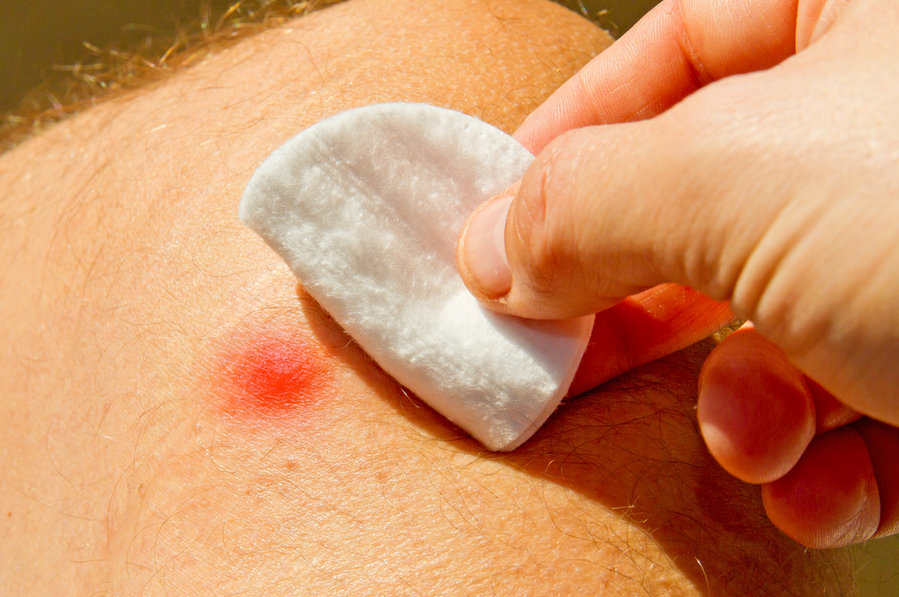
Wash the area around the sting with soap and water to reduce the risk of infection.
Cold Compress the Area Stung by Wasp
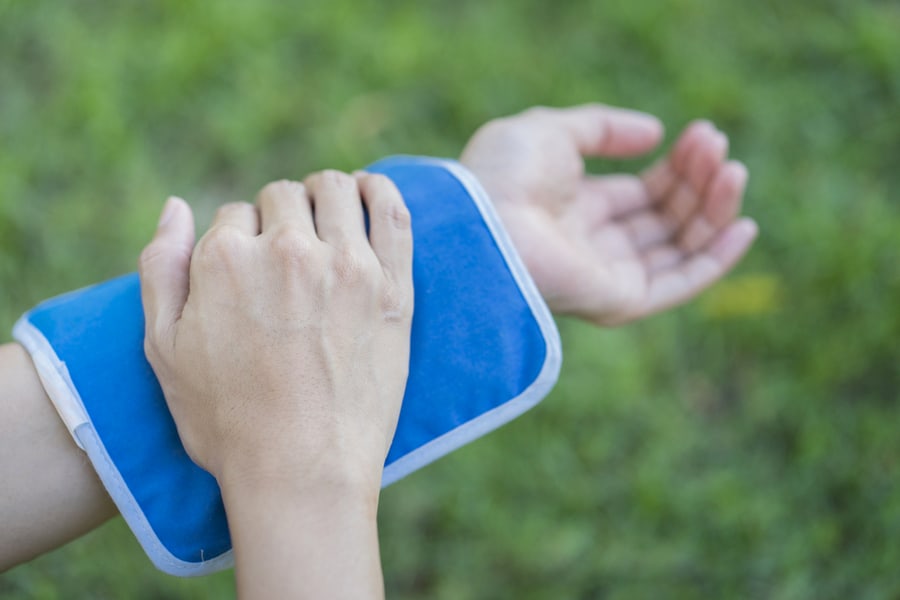
Apply a cold compress to the area to reduce pain and swelling.
You can use a bag of ice wrapped in a cloth or a cold pack.
Take Pain Relief Medication
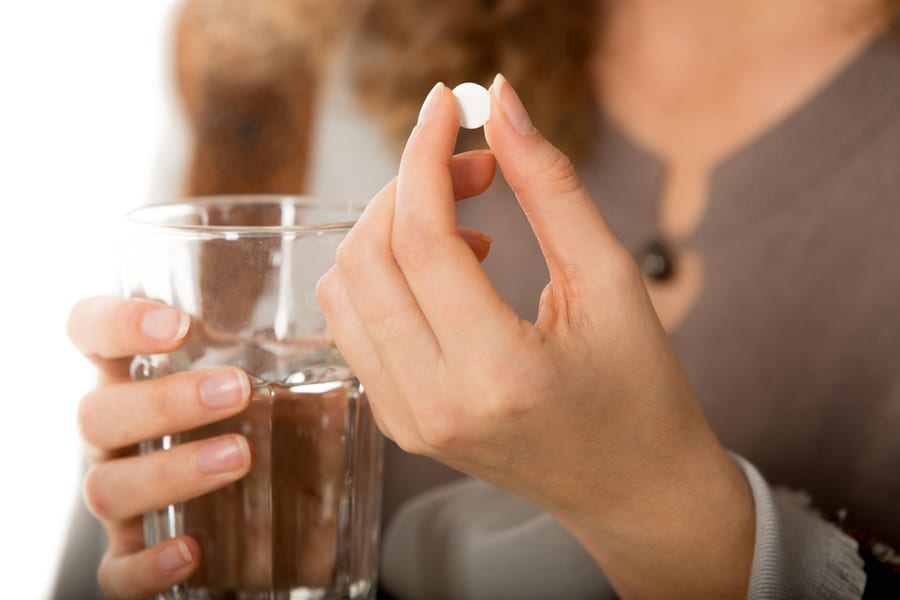
You must take over-the-counter pain relief medication such as ibuprofen or acetaminophen to relieve pain and reduce swelling.
If you have existing medical allergies, consult with your physician before taking any new painkillers.
Watch for Signs of an Allergic Reaction
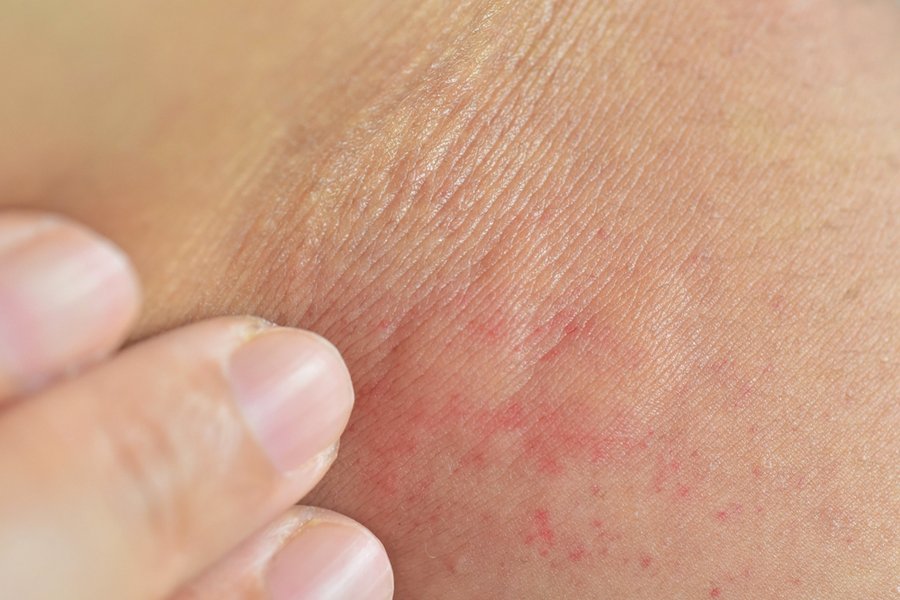
In some cases, a wasp sting is known to cause a severe allergic reaction called anaphylaxis.
It is also important to note that people can react differently to wasp stings, and some individuals may be more sensitive than others.
If you, or someone you know stung by a wasp, experience symptoms such as difficulty breathing, hives, rapid heartbeat, or swelling of the face or tongue, seek medical attention immediately.
Conclusion
In conclusion, wasps are complex insects with sharp senses and a well-organized social structure. They are intriguing to observe but can be a nuisance when they invade your space and hover close to your car.
You can do several things to avoid the wasps near your car, including using wasps repelling spray, placing fake nests, keeping edibles covered in your car, avoiding parking next to a garbage can, and repelling them using visual or sound deterrents.
If you have been stung by a wasp, please do not take it lightly. Follow the proper first aid steps mentioned in the article to treat the sting and keep a watch for any following allergic reaction.
There are a few basic insights into their behavior that wasps are attracted to, including flowers, sweet fragrances, garbage, and bright lights.
You can make your vehicle unattractive for the wasps by ensuring the attractants are not open and inviting them towards your vehicle.
By using these tips, you can ensure a safe and worry-free driving experience.
Frequently Asked Questions
Can I Use Mothballs To Deter Wasps?
No scientific evidence suggests that mothballs are effective in deterring wasps. Using mothballs for pest control can harm people and pets as it causes respiratory irritation if inhaled or ingested.
Do Wasps Chase You?
Wasps, especially yellow jacket wasps, chase you when they feel threatened or think their nest is in danger. They will do anything to protect, that includes stinging.
What To Do if a Wasp Lands on You?
As difficult as it may seem, the best thing you can do is relax and remain calm. If you try to swat it, it will most likely sting you while trying to defend itself.
Why Should You Not Kill a Wasp?
Killing wasps is not a good idea because they play an important role in many ecosystems, such as pollination and pest control.
By killing wasps, you may create disbalance by increasing other pest populations a wasp preys on.
Everything else aside, threatening a wasp will make it aggressive and may result in a painful sting.

